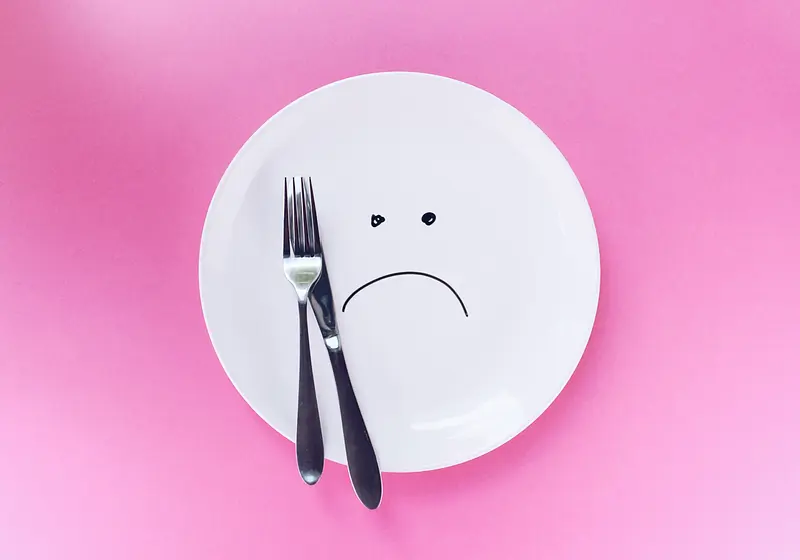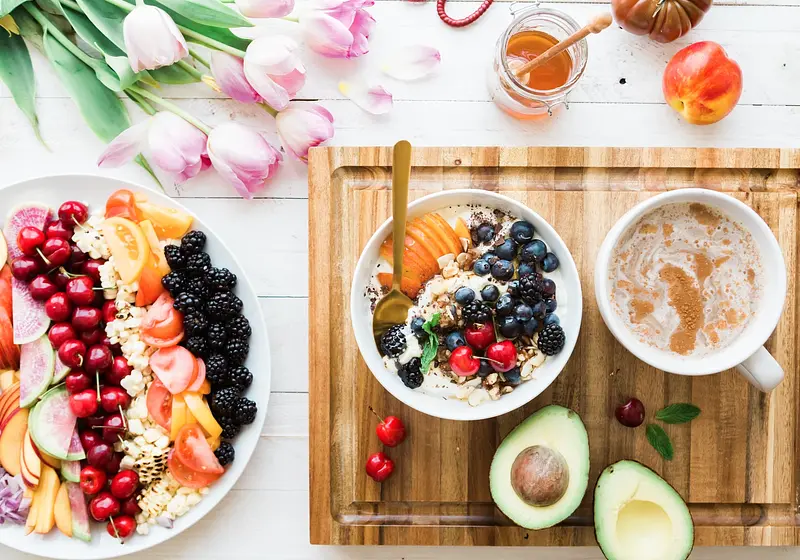Losing weight, though common in the past, has become very popular these days since a lot of people are trying to lose the “Quarantine 15" they gained during the 2020 pandemic.
Nonetheless, it's without doubt that with this new 'trend' will come a lot of misconceptions and misinformation about the topic. So without further ado, here are ten myths about weight loss you need to avoid.
Let us slide into your dms 🥰
Get notified of top trending articles like this one every week! (we won't spam you)1. A calorie is a calorie
Calories are units of energy, and energy is what our body uses to keep us alive. Food is measured in calories, so it means that the more food we eat, the more energy we get. Eating more food than your body needs will result in the excess being stored as “fat” which ultimately leads to weight gain.
On the flip side, eating less food than you need will cause the body to tap into its reserved fuel, i.e. stored fat for more energy, thereby leading to fat loss. That is the basic math of weight loss. In simpler terms, eat less than you burn or burn more than you eat.
Watching your caloric intake while trying to lose weight is important, and it is true that a calorie is a calorie no matter what type of food it is, but that's just the caloric content of that food - not the amount of energy your body will get from it.
For instance, eating 200 calories of protein and eating the same number of calories in processed food will not give you the same amount of energy. This is because your body actually uses 20% of that protein to digest the food, thereby leaving you with only about 160 calories worth of energy at the end rather than the 200 you initially consumed.
Also, foods that contain protein and fiber take time to digest, making you feel fuller for a longer period and thus meaning you consume less overtime. This is why many health and fitness experts suggest focusing more on eating the right food and obtaining the necessary macro nutrients for your body than counting calories.
The end point is, while the amount of food we eat while trying to lose weight is important, we should be more concerned about the QUALITY of our food, rather than QUANTITY.

Image Credit: Ella Olsson from Pexels

Take the Quiz: What is your IQ level?
Find out how smart you are by taking this quiz!
2. Eating after 6pm will make you fatter
This is another weight loss myth that is very common. A lot of weight loss videos and blogs suggest not eating after a certain time to maximize results, and some people claim that eating after 6pm or 7pm can make you look bloated or fatter.
While there might be a plausible explanation for this, it is not scientifically proven. Food will go through the natural process of digestion no matter what time of day it is. Perhaps many people discourage eating late at night is simply because a lot of people tend to make poor food choices in the evening due to boredom and tiredness. However, there's no solid proof that eating after 6 or 7 will hinder your weight loss.

Image Credit: Karolina Grabowska from Pexels
3. Eating breakfast will help you lose weight (OR Eating smaller portions throughout the day will help you lose weight)
Quite a lot of people have heard that skipping breakfast hinders weight loss, but that is scientifically inaccurate. Eating breakfast does not necessarily contribute to your weight loss the way that we are told. The only reason why many health practitioners recommend eating breakfast is because most people tend to overeat later in the day if they skip breakfast, not necessarily because it helps boost your metabolism.
If you love eating breakfast, then go ahead. But if you don't feel hungry in the morning, it is best you wait till you actually want to eat.
Another similar weight loss myth is that it is better to eat smaller meal portions throughout the day than three big meals. This may work for some people, but it is not the ultimate way to improve weight loss. Food should be consumed when needed and when hungry, not limited to a specific eating pattern or time.
Eat when you're hungry and stop eating when you're full - it's as simple as that.
4. Carbs are bad for you
This is one of the trending myths recently and sadly, a lot of people seem to be adopting it. With diet trends like 'keto' and 'no-carb, no-sugar' becoming more popular, carbs seem to have obtained a bad name lately.
Carbs are NOT bad for you. In fact, carbohydrates are a very important part of our diet because they are the major and most preferable source of fuel for our body. Yes, there are some or rather many carbs that are weight-loss “unfriendly”, such as processed carbs and sugar. However, nutrient-rich carbohydrates such as vegetables and whole grains that are rich in fiber are especially good for weight loss.

Image Credit: NastyaSensei from Pexels
5. You need to workout every day to lose weight.
No one likes hitting the gym every day, at least not when you're new to it. In fact, indulging in excessive fitness activities as a beginner can actually do more harm than good, as it can lead to muscle injuries - especially if you're not doing the exercises right. Unfortunately, a lot of people live with this false mindset that weight loss is all about the gym and exercising, which leads them to spend a lot more time working out than they should.
Weight loss happens mainly in the kitchen. What you take into your body contributes to about 80% of your weight loss success; exercising only accounts for a small percent. Though very important, you don't have to work out every single day for you to see results in your weight loss. Exercising 3-4 times a week and having a more active lifestyle can still have a positive effect on your weight loss.

Image Credit: Alesia Kozik from Pexels
6. “Losing weight is just not for me”
Though many people are striving to achieve their fitness goals no matter what, some people have plainly concluded that weight loss is simply not for them. They use factors such as genes and metabolism to excuse themselves.
“I have a slow metabolism, I just can't lose weight.” “Everyone in my family is big, so I guess it's in my genes” are examples of what you may hear from someone who has just given up on their weight loss journey.
While many factors can contribute to your inability to lose weight, weight loss is generally a product of a healthier lifestyle more than a hereditary factor.

Image Credit: Prateek Katyal from Pexels
7. Lifting weights will make you bulky (as a woman)
Many women fear going to the gym and lifting weights because they are afraid of building too much muscle and looking like a 'man'. However, this is just a fallacy.
Lifting weights does build muscle, but not in the way many feel. If you do it correctly, lifting weights can help tone your body without making you look bulky. Building muscle also boosts your metabolism, which is good for weight loss.

Image Credit: Pixabay from Pexels
8. Diet supplements work
Many weight-loss companies want you to believe this so that you can continue to patronize their products. Using diet supplements in the form of pills and drinks can help you lose weight, but it's only for the short-term and will cause some side effects.
According to The FDA, some weight-loss products have been associated with increased blood pressure, heart palpitations, stroke, seizures, and even death! It's best to stick with eating better and being more active.

Image Credit: Nataliya Vaitkevich from Pexels
9. Fad diets don't work
This is in contrast to the previous myth, but I have a good explanation for this.
While fad diets aren't advisable, it is because not only are they short-lived, but they come with a lot of side effects - one of which is a damaged metabolism. But the truth is, they do work - but only if you're looking for short-term results. If you want to lose weight and keep it off, you have to commit to a healthy way of achieving that goal.
That being said, by no means am I trying to encourage anyone into 'dieting'. I am simply stating an observation. If you want to know more about this subtopic, be sure to check out my article on Why starving yourself is bad for weight loss.
10. There is a “right” way to lose weight
While there are so many healthy weight-loss remedies, there is no 'one size fits all' method that is guaranteed to work for everyone. Some people may see good results by embarking on low-carb diets and intermittent fasting while others may not. A handful of people see tremendous weight-loss changes by just making little adjustments to their lifestyle and some people might actually have to hit the gym and build muscle before they see even the slightest changes.
Everybody is different so what works for you may not work for another person. The best advice is to find what works for you that is sustainable and stick to it. The basis of your weight loss should be trying to create a lifestyle that will not only help you lose weight and maintain it, but will improve your overall health.

Image Credit: Max Rahubovskiy from Pexels
That's all the myths I have for this article. If there's any you feel I've missed, feel free to share it in the comments. Do you have contrary opinions to the above-mentioned? Also leave them down in the comments.














